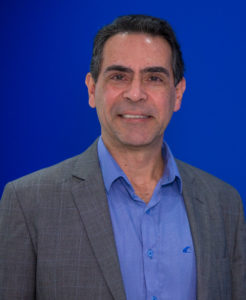The RenovaBio Program was established as the National Biofuel Policy in 2017. Its main objective is to ensure an adequate expansion of renewable fuels in the Brazilian energy matrix, based on more sustainable production models in line with Brazil’s Nationally Determined Contribution (NDC) under the Paris Agreement.
Having an important socio-economic impact, RenovaBio enables Brazil’s biofuels industry to contribute to the UN 2030 Agenda for Sustainable Development.
RenovaBio’s goals were defined by the Ministry of Mines and Energy and is a milestone in Brazil’s transition to a low-carbon economy. The program enables a reduction of more than 10% in carbon dioxide equivalent (CO2 eq) emissions in the fuel matrix, which will lead to more than 600 million tonnes of CO2 eq avoided by 2030.
The model the National Biofuel Policy is based on was widely discussed among civil society and key players in the private sector, requiring a coordinated effort by government ministries. The result was an unprecedented market tool based on the valuation of positive environmental externalities: CO2 emissions avoided through the use of biofuels compared to their fossil fuel equivalents.
The program leads to a virtuous cycle in which distributors pay for fossil fuel CO2 eq emissions by purchasing Decarbonization Credits (CBIOs) generated by biofuel producers. Each CBIO unit corresponds to 1 tonne of CO2 eq avoided in the atmosphere. Over time, the additional revenue biofuel producers obtain from selling CBIOs generates investments to increase productivity, improve environmental efficiency and, consequently, expand the supply of renewable fuels. Demand for biofuels is expected to grow and can be directly met by Brazil, making the national fuel matrix greener.
In this cycle, agricultural production, such as sugarcane, soybeans and corn, plays a key role in the decarbonization of the Brazilian economy. Producers include indicators such as the Carbon Intensity (CI) of their products in their business performance. Each CI is calculated by RenovaCalc, a tool based on the Life Cycle Analysis method and developed by a multidisciplinary team coordinated by Embrapa Environment. The program gives bonuses to producers who achieve greater energy efficiency in their production processes.
RenovaBio encourages more efficient production, both in agricultural and industrial activities, contributing to the following Sustainable Development Goals (SDGs):
SDG 8 – Decent work and economic growth: The industry employs positive management practices, using technology and automation, and ensures better working conditions as well as programs to train and upskill the workforce. This helps reach targets such as 8.5 (decent work) and 8.8 (protection of labor rights).
SDG 12 – Responsible consumption and production: The Program will increase the supply of renewable fuels to consumers in line with target 12.2 (sustainable management and efficient use of natural resources)
SDG 13 – Climate action: The Program increases the amount of biofuels in Brazil’s energy matrix, representing a reduction in fossil fuel emissions and directly helping reach targets 13.2 (strategies to fight climate change at the national level) and 13.3 (capacity to reduce impact on the climate).
In this way, biofuel production in Brazil is moving towards more sustainable, efficient and profitable production models. RenovaBio also builds wealth in agriculture and rural areas across the country, creating jobs, increasing environmental preservation and improving the quality of life for communities in the Brazilian agribusiness.
The UN Global Compact initiative, which works with companies to implement SDGs in their business models, strategies, and operations, understands that joint efforts with the sugar-energy industry and actions developed in partnership with companies across the industry significantly contribute to the advancement of the SDG agenda in Brazil, as biofuel production is one of the most relevant sectors in the domestic economy.
Global Compact has certainly been strengthened by the alliance with Unica and its members, which will be enhanced in 2021.
Authors

Marcelo Abrantes Linguitte
Head of Projects, Operations and Resources Mobilization
Global Compact Network Brazil

Mônica Melo Alcântara
Head of Sustainability at Atvos
Coordinator of Global Compact Network Brazil Platform – Action for Sustainable Agriculture